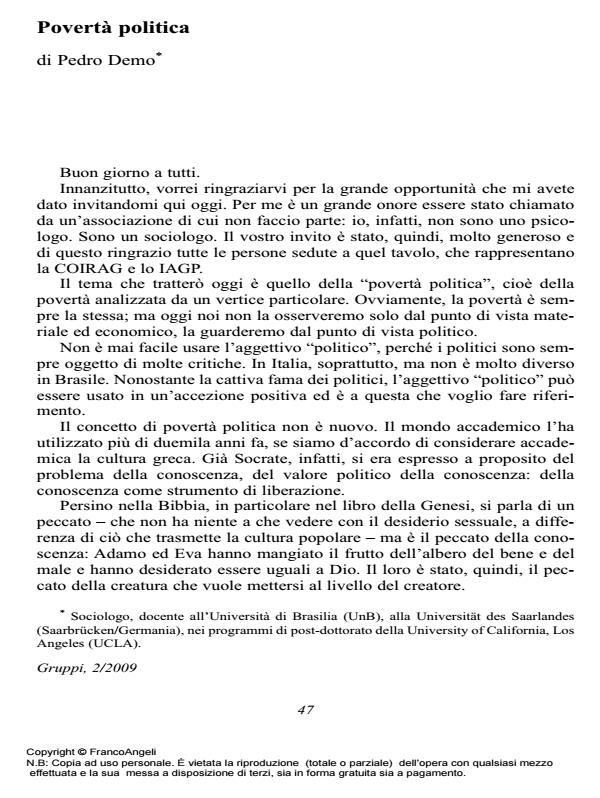Povertà politica
Journal title GRUPPI
Author/s Pedro Demo
Publishing Year 2010 Issue 2009/2
Language Italian Pages 21 P. 47-67 File size 337 KB
DOI 10.3280/GRU2009-002007
DOI is like a bar code for intellectual property: to have more infomation
click here
Below, you can see the article first page
If you want to buy this article in PDF format, you can do it, following the instructions to buy download credits

FrancoAngeli is member of Publishers International Linking Association, Inc (PILA), a not-for-profit association which run the CrossRef service enabling links to and from online scholarly content.
Political Poverty, by Pedro Demo Through the results of surveys carried out in the past few years by various organizations in Brazil, the author offers reflection on the role of knowledge, the importance of education and the mechanisms that contribute to maintaining a specific political and social status quo, which is based on deep differences and biases. Demo interprets the data dialectically, and outlines the central role that education, transmission of knowledge, personal growth and forms of socialization play in the development of free, independent, self-determined people (citizens). The percentages and numbers illustrated by Demo represent a (fortunately) non- Italian reality, but his comments and suggestions offer very useful food for thought, helping to analyze the changes that are currently under way in our country. The proposed paradigm can, in fact, be used to explain the insufficient or absolutely inadequate forms of "citizenship" that emerge in the so-called "South of the World".
Keywords: Poverty, politics, education, welfare policies, citizenship, emancipation.
Pedro Demo, Povertà politica in "GRUPPI" 2/2009, pp 47-67, DOI: 10.3280/GRU2009-002007